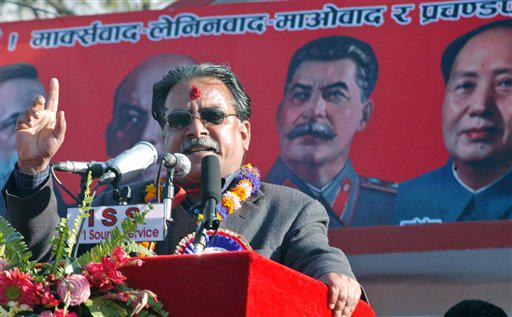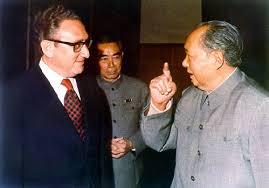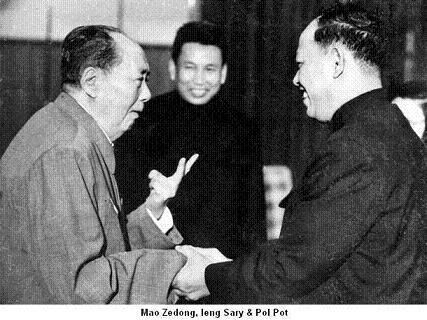

Maoist Popularity Wanes in Nepal Election
Wanneer: 03/12/2013 - 13:15
Results for Nepal's national elections show its Maoist party has plummeted in popularity, coming in a distant third and suggesting the former rebels' influence has diminished in the South Asian nation.



The centrist Nepali Congress, one of the country's oldest political parties, won 2.4 million proportional votes, followed by the Communist Party of Nepal (Unified Marxist-Leninist), which won 2.2 million votes, the Election Commission said Thursday.
The main Maoist party, Unified Communist Party of Nepal (Maoist), won 1.4 million votes. Exactly how the proportional vote, in which voters pick parties rather than candidates, will translate into seats in the new constituent assembly was expected to be announced by Sunday.
Thursday's count mirrored the results earlier this week of the direct voting, in which voters choose candidates rather than parties, announced earlier in the week. The candidates for the Maoist party—led by the revolutionary leader Pushpa Kamal Dahal —secured only 26 of the 240 seats.
The results raised hopes that a national constitution could be drafted as the two leading parties should be able to find common ground on many contentious issues such as federalism.
The results were also a painful defeat for the Maoists, who in 2008 emerged as the single largest party, sparking hope of political stability and inclusive governance with the end of a 10-year civil war. But soon after the monarchy was abolished and Nepal was declared a secular republic, the assembly became paralyzed as partisan squabbling sidelined economic development.
Whichever parties lead the country will still have to struggle to accommodate the views of the influential extreme left and a resurgent right-wing party.
"If they try to bulldoze with their points of view, the others may threaten to pull out of the democratic process," said Nischal Pandey, the director of the Center for South Asian Studies in Katmandu.
"Despite the numbers, they will have to figure out how they will take everyone along."
Minendra Rijal, a senior leader of the Nepali Congress, said his party intends to form a "consensus government" by accommodating the views of all major parties as it writes a new constitution.
"But consensus should not be understood as meaning that a party with 14% of votes can impose its will on others with 85% votes," he said.
Last week, as early results showed the Maoists were trailing, the party alleged fraud and threatened to boycott the new assembly. Nepal's election commission has declined repeated requests by the Maoists for a probe into their allegations.
On Thursday, the Maoists said they wouldn't participate in the new assembly unless their demand for an independent probe was met. They also demanded an amendment to the 2007 interim constitution requiring a consensus vote to pass a new constitution rather than a two-thirds majority.
Accommodating these two demands are "basic and minimum for us to enter into the Constituent Assembly," said Agni Sapkota, a leader of the Unified Communist Party of Nepal (Maoist).
Nepal suffers crippling power cuts and its economy has failed to create jobs for its youth, a large number of who work overseas.
"The Maoists were the largest party and were seen as catalysts for change," Mr. Pandey said. "The gross political instability and their inability to move forward on any major issues caused huge frustrations."

Uit Wall Street Journal? http://online.wsj.com/news/articles/SB1000142405270230401720457922573302... .
[spam deleted]